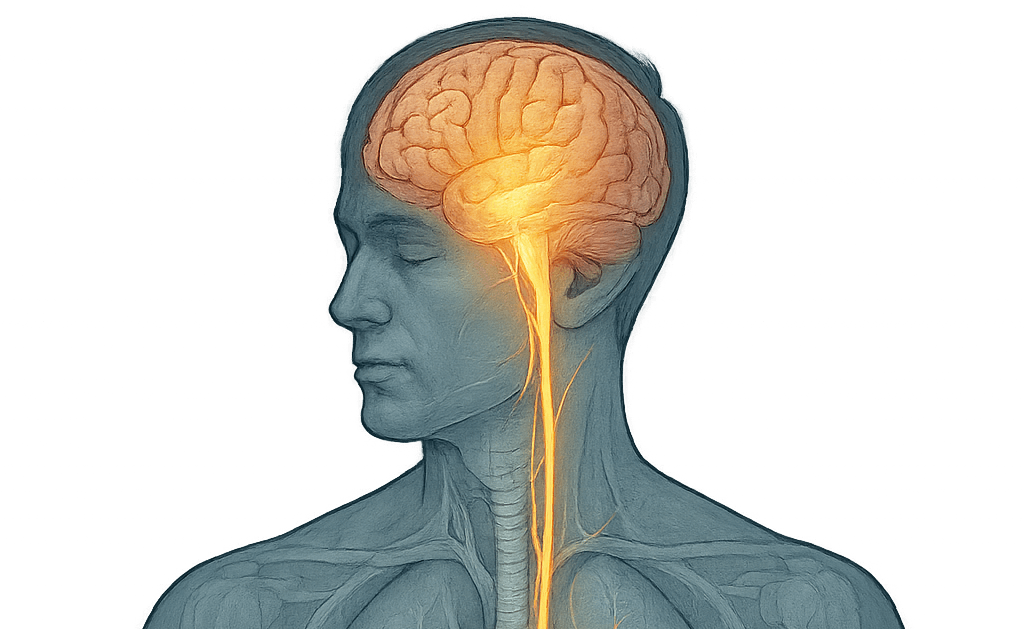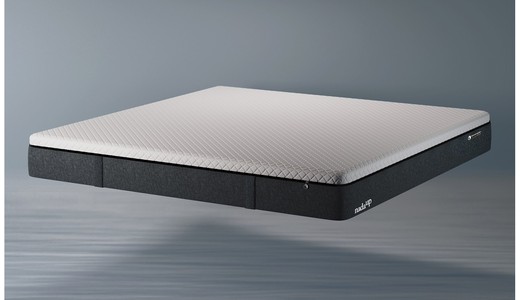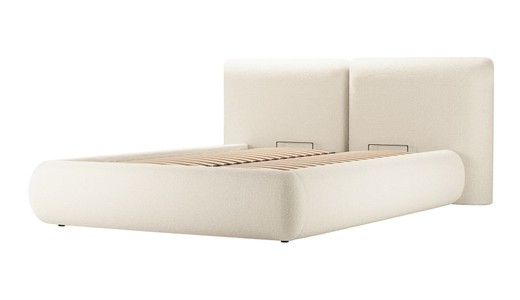Why the Vagus Nerve and Your Mattress Should Be Best Friends

Let’s start with a story. Imagine there’s a superpower inside your body. Not a flashy one like flying or turning invisible—but one that helps you sleep better, stay calm, digest food, and even feel happier. Sounds made up, right? But it’s real. That superpower is called the vagus nerve. Surprisingly, it works best when it’s got a good friend—like the right mattress. Yes, really. Let’s explore how this hidden superhero works and why it might be time to make your sleep space its biggest supporter.
Meet the Vagus Nerve: The Peacekeeper in Your Body
The vagus nerve is like a quiet guardian that runs from your brain, through your neck, and down into your chest and gut. It's one of the longest nerves in your body, touching your heart, lungs, and even the bacteria in your stomach.
When life gets stressful, the vagus nerve steps in to help your body calm down. It tells your heart to slow down, your breath to steady, and your muscles to relax. It helps your body shift from “fight or flight” mode to “rest and digest” mode.
You don’t feel it working—but when it’s in good shape, you sleep deeper, feel less anxious, and even get fewer stomach issues.
Why Should You Care?
Because the vagus nerve is behind so many things we usually blame on “just being tired” or “having a bad day.”
-
Can’t fall asleep? Vagus nerve.
-
Constantly feeling stressed? Vagus nerve.
-
Tummy trouble for no reason? Yep, vagus nerve again.
Taking care of this nerve means better sleep, a stronger immune system, and a calmer mind. Sounds pretty important, right?
The Music It Likes
The vagus nerve responds to sound, especially low, healing vibrations. Music played at 432 Hz or 528 Hz—called healing frequencies—can help stimulate it. Think soft, peaceful tunes. You can search these on YouTube and play them before bed. They work best when you're lying down and breathing slowly.
Easy, Natural Ways to Wake It Up
Here’s how you can “massage” your vagus nerve—no electronics or devices needed.
1. Deep Breathing
Slow breathing tells your body everything is safe. Try breathing in for 4 seconds, holding for 4, and out for 6. Repeat for a few minutes before sleep.
2. Singing or Humming
Yes, even your shower singing helps. The vibration of your voice gently stimulates the nerve, especially in your throat.
3. Cold Water Splash
Splash cold water on your face or try a quick cold shower. It triggers the vagus nerve’s calming response.
4. Foot or Neck Massage
The vagus nerve connects to different parts of your body. Gently massaging your feet, neck, or behind your ears helps send calming signals to your brain.
5. Stretching or Gentle Yoga
Simple stretches and yoga poses—especially ones that involve the spine and belly—can help too. Your nervous system loves movement that’s calm and controlled.
The Gut Connection
Here's something wild: your gut bacteria talk to your brain through the vagus nerve.
When you eat healthy food and sleep well, your gut bacteria flourish. In return, they send good signals through the vagus nerve, which helps you stay in a balanced mood. If you’re sleep-deprived or stressed, your gut bacteria can get off track, and the vagus nerve picks up on that too.
That’s why good sleep and gut health go hand in hand—and the vagus nerve is the messenger in between.
So Where Does a Mattress Come In?
That’s where NadaUp comes into the story.
Unlike regular mattresses, NadaUp mattresses are designed with medical-grade foam and scientific sleep research behind them. Here's how they become the vagus nerve's best friend:
-
They relieve 60% more pressure from your body. Less tension in your muscles means your nervous system can relax more easily.
-
They keep you cool at night, with 69% faster cooling than regular mattresses. Your body sleeps best when it's cool—that's when the vagus nerve is most active.
-
You fall asleep 29% faster, and your sleep is 7% more efficient. That’s more time for the vagus nerve to do its healing work.
-
They help lower your stress hormone cortisol, and support the production of melatonin (for sleep) and serotonin (for mood)—all deeply connected to vagus nerve activity.
The Real Deal
Let’s put it simply: if your vagus nerve is relaxed, your whole body benefits. And that starts with how you end your day.
A deep breath, soft music, gentle stretches, and a high-quality NadaUp mattress together form the ultimate night routine. It's a team-up between science, your body, and smart sleep tech—all working quietly behind the scenes to keep you healthy, strong, and balanced.
So tonight, give your vagus nerve the comfort it deserves.
Let your mattress be more than a bed. Let it be your body's best support system.









